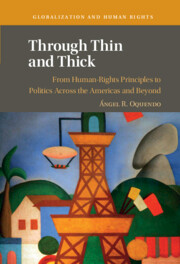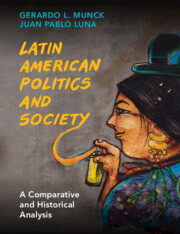This essay reviews the following works:
Limits to Decolonization: Indigeneity, Territory, and Hydrocarbon Politics in the Bolivian Chaco. By Penelope Anthias. Ithaca, NY: Cornell University Press, 2018. Pp. 312. $27.95 paperback. ISBN: 9781501714368.
The Extractive Zone: Social Ecologies and Decolonial Perspectives. By Macarena Gómez-Barris. Durham, NC: Duke University Press, 2017. Pp. xii + 208. $24.95 paperback. ISBN: 9780822368977.
Oil, Revolution, and Indigenous Citizenship in Ecuadorian Amazonia. By Flora Lu, Gabriela Valdivia, and Néstor L. Silva. New York: Palgrave Macmillan, 2017. Pp. 313. $119.00 hardcover. ISBN: 9781137564627.
Undoing Multiculturalism: Resource Extraction and Indigenous Rights in Ecuador. By Carmen Martínez Novo. Pittsburgh: University of Pittsburgh Press, 2021. Pp. 280. $50.00 hardcover. ISBN: 9780822946632.
Landscapes of Inequity: Environmental Justice in the Andes-Amazon Region. Edited by Nicholas A. Robins and Barbara J. Fraser. Lincoln: University of Nebraska Press, 2020. Pp. xxxiv + 347. $65.00 hardcover. ISBN: 9781496208026.
La lucha por los comunes y las alternativas al desarrollo frente al extractivismo. Compiled by Denisse Roca-Servat and Jenni Perdomo-Sánchez. Buenos Aires: CLACSO, 2020. Pp. 430. E-book. ISBN: 9789877228137.
Shifting Livelihoods: Gold Mining and Subsistence in the Chocó, Colombia. By Daniel Tubb. Seattle: University of Washington Press, 2020. Pp. xxviii + 217. $95.00 hardcover. ISBN: 9780295747521.

